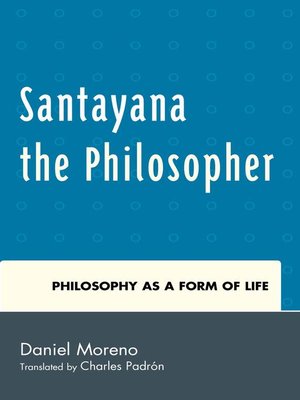
Sign up to save your library
With an OverDrive account, you can save your favorite libraries for at-a-glance information about availability. Find out more about OverDrive accounts.
Find this title in Libby, the library reading app by OverDrive.



Search for a digital library with this title
Title found at these libraries:
| Library Name | Distance |
|---|---|
| Loading... |
Regarding Santayana it has been claimed that he lacks a system while contradicting himself in outrageous ways. An attentive analysis of his complete œuvre, however, reveals something else entirely. It is not easy to classify a thinker as a Platonic materialist, an ironic nihilist, a spiritual atheist, and a conservative without political commitment, but, if one respects his own language, one discerns an astonishing, little-known Santayana, whose philosophical leitmotif consists in: 1) detecting the numerous "false steps," logical and moral, supplied by the imagination when it confuses things with the names that designate them, or the world with the feelings that it provokes in the human animal—these errors assume diverse faces: pantheism, moralism, egotism, subjectivism, transcendentalism, Platonism, Puritanism, and utopianism; 2) avoiding these illusions in such a way as to keep the spiritual door open as a form of life to be lived out in an honest fashion; 3) recognizing the natural origin of these temptations and asking oneself what moves humans to succumb imperceptibly to these mistakes, at times tragic, at others comical, and what precautions one can take to remain cognizant of the deceitful leaps that can hijack one's life; and 4) proposing as an alternative the radical distinction between essence and existence, which leads him to distinguish four realms of being: the realm of essence, the realm of matter, the realm of truth, and the realm of spirit. Essence as logical identity, matter as contingent existence, truth as frozen history, and spirit as the flames that part from contingency and approximate the eternal. An attempt has been made in this book to expand on and clarify these questions.






